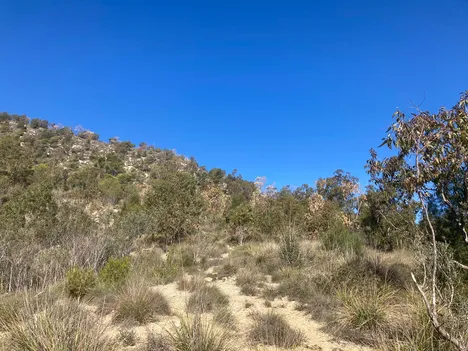Convergence
Integrated Forest, Water, Prosperity Project Tunisia

Climate change is causing changes in rainfall patterns and thus water balance worldwide. By the end of the century, the Mediterranean will be significantly drier during all seasons. More unfavorable precipitation distributions will lead to more frequent to long dry periods and flash floods.
The Convergence project aims to investigate whether these effects can be counteracted by targeted reforestation supported by reuse of municipal wastewater. It is assumed that forested areas significantly influence their rainfall regime and the local landscape’s water balance. The global rainforests, for example, produce most of their daily precipitation themselves. Deforestation, on the other hand, can turn fertile landscapes into deserts or steppes.
The project aims to characterize the scientific, geographic-climatic (climate change), technical as well as socio-economic basis in Tunisia to carry out a partnership-based reforestation to influence the water balance of the region in a sustainable way. In the long term, the reforested areas are to:
- Bind CO2 and regulate the local microclimate,
- Generate additional precipitation by reactivating the biotic pump or similar effects, and thus provide sufficient water for themselves and their surroundings,
- Serve as (limited) usable land, and motivate the local population for conservation and protection (e.g. harvest of fruits, cork and medicinal plants as well as recreational area).
Thus, the project focus lies on improving the local Tunisian population’s living conditions; in creating new prospects for life at the local level, as well as combating poverty and the causes of migration. Many earlier reforestation projects in the Maghreb did not develop optimally, due to poverty of the local population, scarcity of wood, as well as weak governance structures. In addition to droughts and forest fires, economically motivated (unintentional and illegal) deforestation poses a major challenge to large-scale and sustainable reforestation. The preservation of the forest must be of clear economic benefit to the population for sustainable project implementation. The project therefore aims to facilitate acceptance for the long-term project sustainability through involvement of all stakeholders from the project outset.
Partners
Government of Tunisia
International Expert Group on Earth System Preservation (IESP), TUM Institute of Advanced Study
Funding
Bavarian State Ministry of Environment and Consumer Protection (StMUV)
Project duration
November 2022 - October 2024